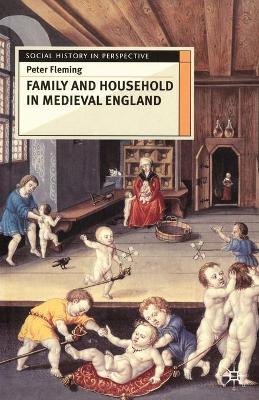Social History in Perspective
1 total work
Drawing upon a wide range of historical research, Family and Household in Medieval England offers a stimulating and engaging introduction to the formative period of one of the central institutions of western society. The family and household together provided the basic unit of social organisation in the Middle Ages, and this period saw the emergence of many aspects of modern life, not least the marriage service and its attendant ceremonies.
The family was one of the few experiences or institutions common to every rank of medieval society, from princes to peasants. The centrality of this theme is reflected in the breadth of topics considered here, which embrace demography, the law, theology and popular belief, property-holding, employment, and, of course, love and emotional relationships. These areas are explored in a clear and accessible manner.
After discussing the family in the religious and legal traditions from the late classical and barbarian periods to the Middle ages, the book adopts a 'life-cycle' approach to the history of the medieval English family, beginning with courtship and marriage, encompassing childbirth and the parent-child relationship along the way, through to the dissolution of marriage, either by death or separation, and ending with a discussion of widowhood, wardship and retirement. The text is illuminated with examples from the experiences of people from all levels of medieval soicety, reflecting the diversity of family life in this period. The history of the family touches upon the most intimate areas of life, and Fleming never forgets that it is real people, who possessed complex emotions, sensibilities and private lives, who form the heart of this study.
The family was one of the few experiences or institutions common to every rank of medieval society, from princes to peasants. The centrality of this theme is reflected in the breadth of topics considered here, which embrace demography, the law, theology and popular belief, property-holding, employment, and, of course, love and emotional relationships. These areas are explored in a clear and accessible manner.
After discussing the family in the religious and legal traditions from the late classical and barbarian periods to the Middle ages, the book adopts a 'life-cycle' approach to the history of the medieval English family, beginning with courtship and marriage, encompassing childbirth and the parent-child relationship along the way, through to the dissolution of marriage, either by death or separation, and ending with a discussion of widowhood, wardship and retirement. The text is illuminated with examples from the experiences of people from all levels of medieval soicety, reflecting the diversity of family life in this period. The history of the family touches upon the most intimate areas of life, and Fleming never forgets that it is real people, who possessed complex emotions, sensibilities and private lives, who form the heart of this study.
